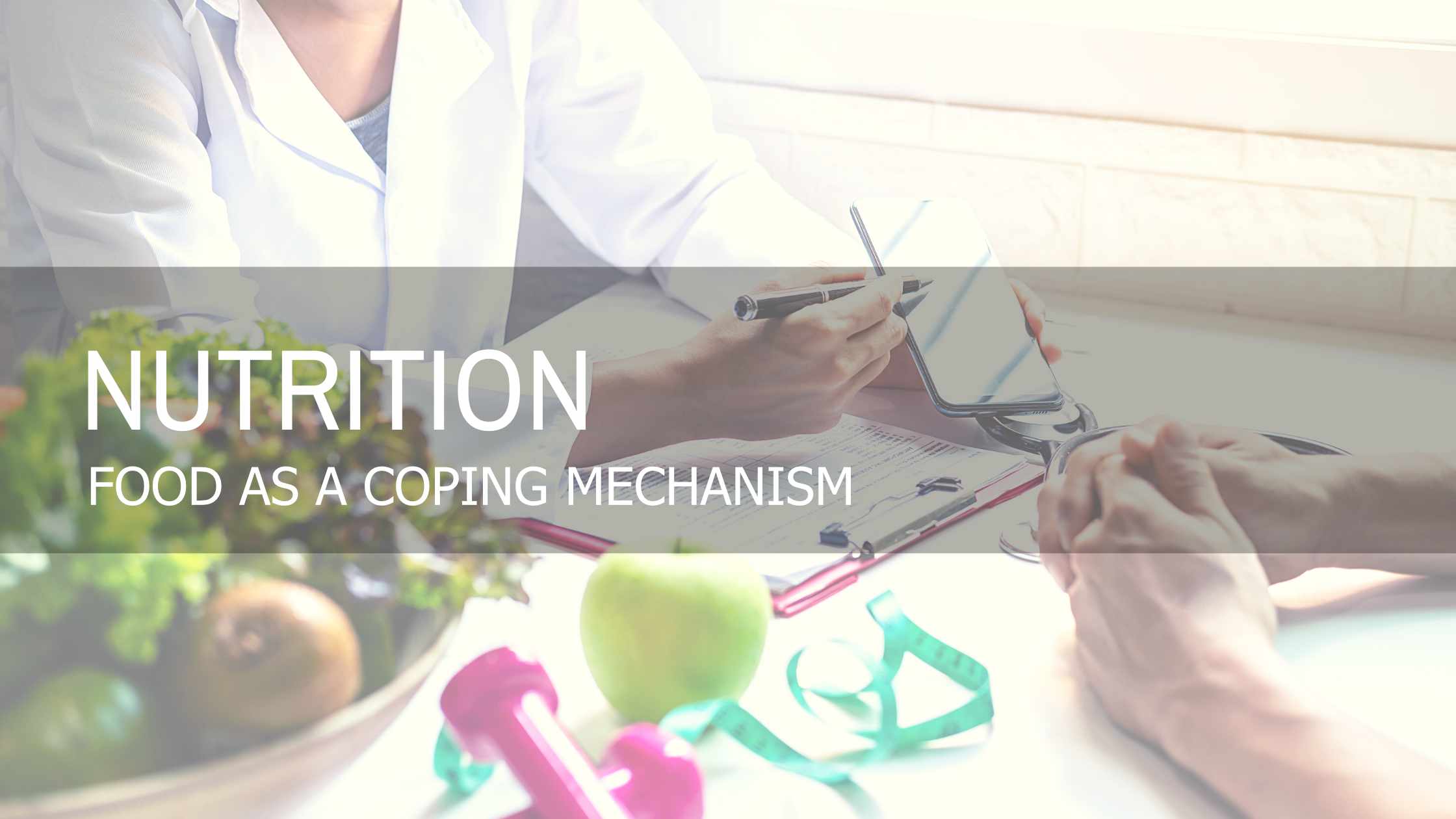
Apr 30 , 2021
0 Comments
Emotional Contributors to Stress | Food As a Coping Mechanism
A coping mechanism is any thought process or pattern of behavior that acts to alleviate the effects of a stressful situation. There are both positive and negative ways to do so. Unhealthy eating is one of the most common coping mechanisms. This often stems from environmental influences growing up, distorted self-image, traumatic experiences, and a general avoidance of problems.
Parental Figures in Early Childhood
The most significant source of how we learn to cope in our environment is from our primary caretakers during childhood. We learn to soothe ourselves through modeling behavior from significant parental figures and the reactions we received in response to trying to get our needs met (physical and emotional).
Food as Affection
If food was consistently offered as a way to cheer a child up from any negative emotion or if it is used as the main way to show affection (ex. being pressured to eat large amounts of food to reciprocate the love and gratitude), then a person will tend to use food as a source of comfort and affection.
Deprivation and The Scarcity Mentality
On the other hand, if a child is deprived of having enough food through neglect, poverty, or to a lesser extent, being an immediate member of a large family, then it can lead to having a “scarcity mentality” where one doesn’t know when he or she will get to eat next or have enough food. So, when resources are abundant, there is either a rationing of food or an overindulgence (ex. making sure one eats enough before the food runs out or spoils). This instability in the environment can cause a fixation on food and whether or not there will ever be enough.
Additionally, if parents or grandparents grew up under harsh circumstances, there may have been added pressure to eat when one is not hungry or clean one’s plate (because they don’t want the food to go to waste). This can lead to overeating habits.
Distorted Self-Image
When we see ourselves in a highly negative way, especially concerning the body, there is a tendency to “punish ourselves” by either excessive dieting (ex. I don’t want/deserve to eat because I’m too fat) or neglecting the body altogether (ex. I am not good enough so why even bother? I’ll eat whatever I want.). As a result, the fixation on food can be used as a distraction from focusing on the negative feelings.
Traumatic Experiences
When people experience highly traumatic events, they often feel isolated and may have the desire to change the appearance of the body from the state when it was most vulnerable. For example, if a woman was considered tiny and attractive at the time of being attacked, then she may overeat to make herself look less attractive and bigger as a way to feel safe or to numb the feelings of anger, sadness, guilt, confusion, isolation that often come along with it. Additionally, food might provide a source of comfort and happiness when it doesn’t feel like other people can be trusted.
General Avoidance of Problems
Often times, the way we approach problems in one area of our lives is the way we approach problems in other areas. So, if an individual is more of an avoidant type, he may try to numb himself with certain things such as food. The tricky thing about food being used as an escape is that we can’t live without it, which makes it all the more easier to develop unhealthy eating habits.
What are Some Tools to Help with Negative Coping Mechanisms?
Observe your thoughts and feelings around food while you are stressed – What are your best and worst memories regarding eating and food as you were growing up? We tend to gravitate towards certain things, even food, that we associate with fond memories, comfort, and familiarity.
Expand your positive support system – When it comes to unhealthy coping mechanisms related to food, it’s commonly a way to self-medicate and numb our feelings, because we don’t feel that we have enough support or people to turn to. So, to replace the negative coping mechanisms, there needs to be positive outlets (friends, family, medical professionals, religion, communities, activities, etc.) to release our stresses, anxieties, and worries.
Practice self-acceptance – it is important to remember that most coping mechanisms that we develop were effective adaptations at least one point in our lives or we wouldn’t have kept them in our coping toolbox. However, just because it was useful in the past doesn’t mean that it will remain effective and beneficial. For effective coping, the more tools and skills that we learn to adapt to stress, the more equipped we will be to handle life.
Incorporate additional positive coping tools and skills – Exercising regularly, reading, journaling, meditation, practicing yoga, socializing with positive people, engaging in productive and rewarding hobbies, being physically active, etc. are some of the many possibilities.



